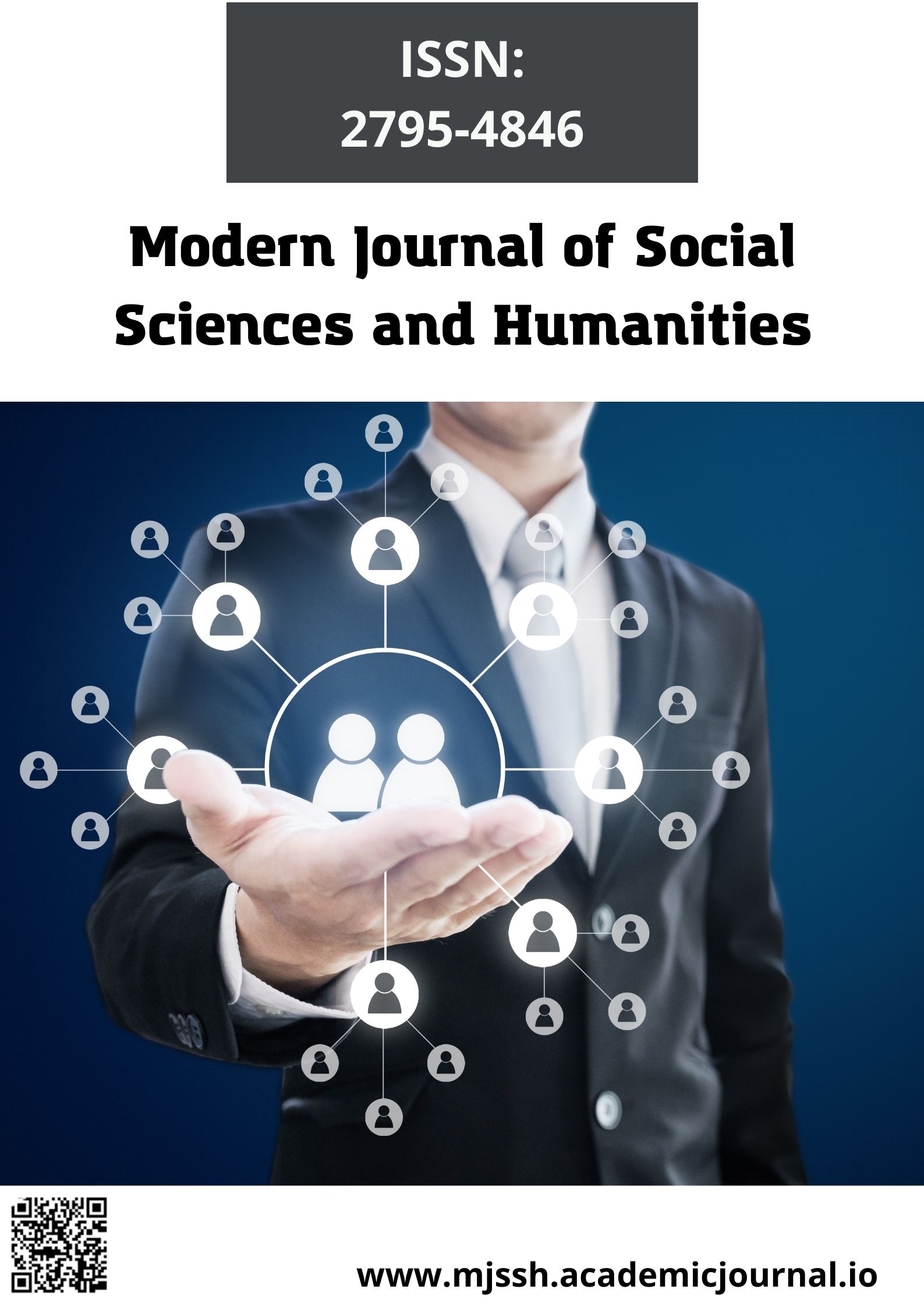Effect of Educational Fieldtrip Experience on NCE 3 Students Academic Achievement and Retention in Social Studies in Tertiary Institutions in Katsina State, Nigeria
DOI:
https://doi.org/10.51699/mjssh.v2i6.675Keywords:
Fieldtrip experience, Academic achievement, Tertiary institution, Teaching and learningAbstract
This study investigated the effects of field trip on students’ academic achievement and retention in tertiary institutions in Katsina State. The study was conducted within the three tertiary institutions in Katsina State and was restricted to NCE 3 students only. The three tertiary institutions are: Federal College of Education, Katsina, Isa Kaita College of Education, Dutsinma, and Bala Usman College of Arabic and Islamic studies Daura. Quasi-experimental research design was adopted for the study. A total number of 381 students’ were selected through simple random sampling technique for the analysis out of the total population used for the study. Social Studies Achievement Test (SSAT) consists of twenty five (25) items objectives questions with options A-D was developed by the researcher with a reliability coefficient of 0.84 using Kuder-Richardson formula 21 was used for data collection. The SSAT was administered thrice, before experiment (Pre), after experiment (Post) and two weeks after post SSAT (Retention test). Data collected were analyzed using descriptive statistics of mean and standard deviation for answering the research questions and Analysis of Covariance (ANCOVA) was used to test the hypotheses raised at 0.05 level of significance. The findings of the study revealed that Social Studies students’ taught using field trip perform better than those taught using expository/conventional teaching method and also the level of retention of students is higher when taught with field trip compared to when taught with conventional method. Based on the findings of the study, the study recommends that: Social Studies curriculum should be reviewed to accommodate all students’ to embark on fieldtrip to learn outside classroom environment and also Social Studies should be learner centered rather than teacher centered to enable students learn on their own independently.
References
Amosa, A. A, Ogunlade, O.O & Atobatele, A.S (2016). Effect of Field Trip on Students’ Academic performance in Basic Technology in Ilorin Metropolis, Nigeria. Malaysian Online Journal of Educational Technology. Volume 3, Issue 2.
Amosa, A. A. (2013). Effect of community resources on Junior Secondary Schools’ Performance in Basic Technology in Ilorin, Kwara State, Nigeria. Journal of Education in Developing Areas (JEDA), 21(1), 214 - 221.
Daluba, N. E. (2013). Effect of Demonstration Method of Teaching on Students’ Achievement in Agricultural Science. World Journal of Education, 3(6), 17.
Davidson, S. K., Passmore, C., & Anderson, D. (2010). Learning on zoo field trips: The interaction of the agendas and practices of students, teachers, and zoo educators. Science Education, 94(1), 122-141.
Ehirin, A.I, Ikechukwu, N, Prisca,C., Amanze, K.O & Unegbu, S.O (2021). Effectiveness and utilization of fieldtrip as a method of teaching and learning chemistry in senior secondary schools in a council Area of Imo state, Nigeria. Asian Journal of Education and Social Studies, 21(4); 1-9
Fakomogbon, M. A, Ibrahim, A. I., & Gegele, W. B. (2007). An introduction to vocational method. Ilorin, Nigeria: Onigba.
Federal Republic of Nigeria (FRN, 2014). National Policy on Education. Lagos, Nigeria: NERDC, Government Press.
Federal Republic of Nigeria (FRN, 2015). National Commission for Colleges of Education (NCCE), Nigeria Certificate in Education Minimum Standards for Arts and Social Sciences Education. Abuja, Nigeria, Government Press.
Federal Republic of Nigeria (FRN, 2020). National Commission for Colleges of Education (NCCE), Nigeria Certificate in Education Minimum Standards for Arts and Social Sciences Education. Abuja, Nigeria, Government Press.
Haruna, S. (2021). Impact of corruption on attainment of quality education and pupils’ adaptability to changing environment in Primary Schools in North Central Nigeria. Al-Hikimah Journal of Educational Management and Counseling Vol.3 (2). Dec, 2021
Haruna, S. (2018): Effect of Fieldtrip Technique on JSS achievement and retention in Social Studies: Implications for Curriculum and Community Development. Nigerian Journal of Curriculum Studies, vol. 25. Pp.160-171. .
Haruna, S &Muhaimin M. (2018). The effectiveness of field trip toward the students writing ability of descriptive at SMPN 1 Sumbergempol.
Instructional Strategies Online. (2013).What is Field trip? Retrieved fromolc.spsd.sk.ca/DE/PD/instr/strats/fieldtrips/index.html
Kipkoech, L. A. (2021). Use of fieldtrip method on History and Government Instruction in Secondary Schools; Kenya East African Journal of Educational Studies 3(1), 70-76.
Ndan, E.D & Jarimi, M.M (2011). Theory and practice of Social Studies curriculum in Nigeria. Abuja chartered graphic press.
Njoku,M. I. A.&Mgbomo, T. (2021). Effect of Field Trip and Demonstration Methods on the Achievement of Secondary School Students in Biology.
Obeka, S. S. (2010). Current trend in geographical and environmental education. Zaria, AhmaduBello University Press, Ltd.
Oka, U. A. & Samuel, I. R. (2020). Effect of field trip instructional strategy on students’ interest and achievement in Ecology in Nasarawa State, Nigeria. International Journal of Innovative Education Research, 8(2) 27-33.
Omosewo, E. O. (2009). Formal Instructional Method (3): Laboratory, demonstration and field trip Methods on instruction. Principle and practice of instruction. Ilorin, Nigeria: Bamitex.
Osakwe, E. (2012). Needed paradigm shift for repositioning Social Studies Education to meet vision 20-20-20 challenges in Nigeria, In Nigeria Journal of Social Studies, and Journal of Social Studies Association of Nigeria (SOSAN) Vol. 15 (1) May, 2012.
Oyebola, O. (2012). Social Studies teachers’ perception of levels of utilization of instructional resources in Junior Secondary Schools in Kwali, Abuja.
Salihu, J. J. & Abubakar I.D (2020) Effects of educational field trips on Social Studies students’ academic achievement in Junior Secondary Schools in Kaduna State, Nigeria. Zibeline International Online Journal of education, sustainability & Society (ESS) 3 (2).
Yenigul, C. k (2021) Out- Of- School Learning Environments in the Context of Social Studies Teaching (The Field Trip Method). Turkey, Baskent University. Retrieved from: https://www.researchgate.net/publication/357167740





